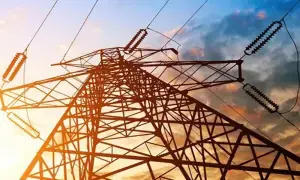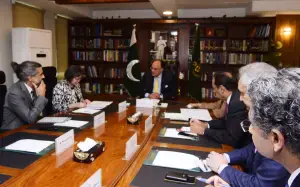Govt raises taxes for salaried people, adds petroleum levy
3 min readISLAMABAD: Pakistanis will now have to pay a minimum petroleum levy of Rs50 per litre and people with salaries over Rs50,000 will have to pay more taxes.
These changes were pushed through in the shape of Finance Bill 2022, giving legal effect to budgetary proposals for the next fiscal year. It was passed by the National Assembly on Wednesday, amid protests from the opposition.
“Right now, the levy on petroleum products is zero,” Finance Minister Miftah Ismail said on the assembly floor. “The Rs50 per litre petroleum levy will not be imposed in one go.”
The development comes against the backdrop of the loan revival document which contains details regarding the revival of the loan programme – the draft of the memorandum of economic and financial policies – received by Pakistan from the International Monetary Fund. Pakistan has sought an extension and increase in the bailout package, from $6 billion to $8 billion.
Pakistan unveiled a Rs9.5 trillion budget for 2022-23 this month aimed at tight fiscal consolidation in a bid to convince the IMF to restart much-needed bailout payments. The coalition government had increased the salaried cap for income tax from Rs50,000 to Rs100,000 per month.
- Rs699b = targeted subsidies
- Rs364b = Benazir Income Support Program
- Rs12b = Utility Stores Corporation subsidy
But State Minister for Finance Ayesha Ghous Pasha ruled out any impression that the amendments to the Finance Bill were made on the demands of IMF. “80% of the tweaks were directly made related to the taxes,” she said, adding that the government aimed at taxing the rich and providing relief to the poor.
“We are only following the agreement signed by the previous government with the IMF,” Ayesha said.
Clauses approved
- Receiving tax from traders via their electricity bill approved
- 5% sales tax on the service of IT and software consultants
- Right to additional perks for Speaker, Senate chairman given to standing committee
- NA gave clause wise approval to the Finance Bill
- Petroleum levy will be applicable for the next fiscal year 2022-23
Levy on mobile phones import
- Rs100 on mobile worth $30
- Rs200 on mobile worth $30 to $100
- Rs600 on mobile worth $200
- Rs1,800 on mobile worth $350
- Rs4,000 on mobile worth $500
- Rs8,000 on mobile worth $700
- Rs16,000 on mobile worth $701
The government has ended the duty on the import of equipment related to post-production, film production, and cinema. The items include projectors, audio racks and termination board, screen, 3-D glasses, digital loud speakers, amplifiers, and music distribution systems.
The salaries of government employees have been increased fifteen percent along with a merger of ad hoc allowances.
The government has levied a super tax on the affluent class.
There will be no tax on those earning less than Rs600,000 a year.
Rs600,000 < earning < Rs1.2 million = tax 2.5% on the amount over Rs600,000
For the latest news, follow us on Twitter @Aaj_Urdu. We are also on Facebook, Instagram and YouTube.


























Comments are closed on this story.